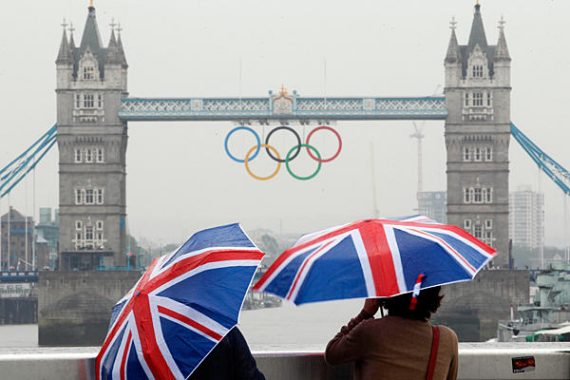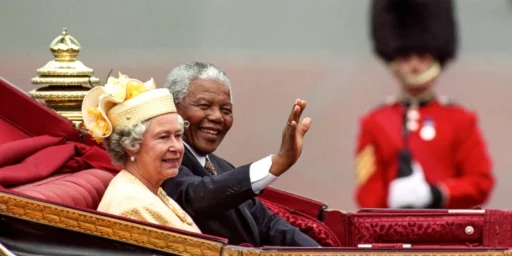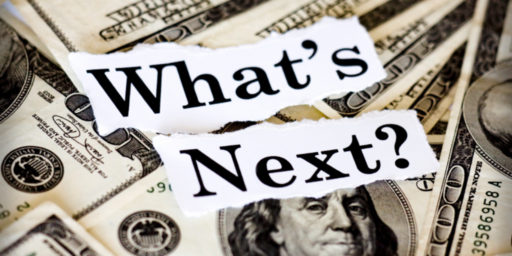Britain’s Golden Age Is Now?
Doug Saunders makes the counterintuitive claim that things are better for Britons than ever.
Doug Saunders makes the counterintuitive claim that things are better for Britons than ever:
Crime rates are the lowest in decades. The economy is wounded but better than those of most European countries. Public transport, after a disastrous postwar nationalization followed by a catastrophic 1980s privatization, is finally working well. The health system is better than ever. Secondary education is middling; universities are top-notch. Few European countries display as much racial and religious tolerance.
In short, it’s probably the best it’s ever been. The past four years have knocked back its economy and politics, but Britain’s underlying society and institutions have never been healthier.
[…]
But when was that supposed golden age?
Some claim it was after the war, before divorce and the Pill and Margaret Thatcher and Rupert Murdoch, when life was simpler, national institutions were grand, people knew their place and everyone pulled together.
But look at that age. Food rationing in the 1950s was worse than during the war. Poverty and overt racism were rife. The Suez Crisis devastated foreign policy, gang violence poisoned cities, and the collapse of the industrial economy had begun. The bestselling books of that time – What’s Wrong With Britain? (1954), The Stagnant Society (1961), Suicide of a Nation (1963) – made the same arguments you hear now.
A few Marxists and conservatives prefer pre-capitalist times, but mass starvation and early death made feudal Britain a miserable place. Others turn the clock back to the height of colonialism, when the pound was the world’s medium of exchange, the British Navy ruled the waves and London was the centre of the world.
But bigger did not mean better: This was a perilous and unpleasant time. The Empire had reached its economic peak in 1870, and its financial returns, along with Britain’s share of the world economy, declined precipitously after that, beginning with the worst depression the world had seen and continuing into a series of currency and trade crises and terrible wars.
Before the 1950s, Britain was a dark, poverty-filled and unhealthy place, where those without property had few rights and the lower classes could obtain no property. Health and decent education were the strict preserve of the well-off until after the war, and the United Kingdom’s multicultural reality (the country was always a mosaic of four very different cultures) was making itself violently known, especially in Ireland.
Of course, this exercise would play out much the same for all but a handful of countries on the planet. By and large, we’re a richer, healthier, more evolved species than we were decades, much less centuries, ago.
Presumably, the reason Britons see themselves as in decline is the same reason Americans do: we compare ourselves to an idealized version of the past while taking advances for granted.
For Brits, the “decline” has been much steeper. Within living memory, the UK had a global empire and could at least claim to be the greatest country on the planet. To be sure, the Empire was more trouble than it was worth and constituted an enormous drain on the common weal; but it also stoked a sense of national greatness. Now, the UK’s claim to great power status is that they have a Special Relationship with the world’s sole remaining superpower and therefore “punch above their weight class.” (This, incidentally, is not true. The UK punches pretty much at its weight on its own merits. It’s 6th in GDP and 4th in defense spending and has commensurate economic and military weight.)
For the US, we hark back to a very short period following World War II when we emerged as a superpower and every other great power was an economic shambles and otherwise ravaged after years of war. That others would catch up, making us relatively less powerful, was not only inevitable but aided by our deliberate policy decisions such as the Marshall Plan.
Additionally, both Brits and Americans (and, certainly, many others) look back wistfully at times when our cultures were less coarse, our popular culture more uplifting, our politics less polarized, and our national unity was greater. That these things were only true for brief flashes or for narrow segments of the population if at all gets elided. Certainly, the golden age was much less so if you were poor, black, female, or gay.
It doesn’t help that we recall the past through a rose colored lens while the present is being tweeted and blogged. The 1950s weren’t really like “Leave it to Beaver” or “Father Knows Best.” The 1960s weren’t really like “The Andy Griffith Show” or “My Three Sons.” Nor is our present age much like “Real Housewives” or “Keeping Up with the Kardashians.”







Your argument is that national greatness is important to happiness, something not true for normal, healthy, people 😉
And you didn’t mention vacations. Some guy in the internets shares these numbers (in days): Italy 42 – France 37 – Germany 35 – Brazil 34 – Britain 28 – Canada 26 – South Korea 25 – Japan 25 – U.S. 13
BTW, I skimmed a little of How Paul Ryan captured the G.O.P.
The New Yorker makes a big deal of Ryan’s antipathy for things “European,” but it is important, and ties to articles like this.
If Europeans are feeling health, happy, and on holiday, we should still feel them inferior because they aren’t grinding away under poor conditions for national greatness?
The cognitive dissonance inherent in leftism truly is amazing and that piece by that Saunders fellow reads like a Monty Python skit. Seriously.
Reality: “Britain has devolved into a cesspool of failed social engineering policies and its trend line is one of further steep declines.” Saunders: “It’s just a flesh wound. Things are better than ever.”
Geez.
In any event, what happened to Britain is what happened to pretty much all of Western Europe, post WWII. The U.S. rebuilt them with the Marshall Plan. The U.S. secured them and then protected them. The U.S. provided export markets for them. Hell, the U.S. pretty much did everything but wipe their asses for them.
Britain got soft. When a country gets soft it goes into decline. When a country goes into decline it falls into a negative vortex. Then the decline feeds upon itself. So on, so forth. France even is more of an egregious example. Of course the PIIGS fiasco speaks for itself.
This won’t end well. Britain and most of Europe (ex Germany) haven’t even come close to bottoming out. Just wait until their banking systems collapse. You ain’t seen nothin’ yet.
@john personna: No, I’m making the argument that “national greatness” is important to people’s sense of their country’s standing in the world. That’s particularly true for societies—the UK, US, Russia, France, Turkey, Germany, China—that are or have been Great Powers at some point in the relatively recent past. But I’m agreeing with Saunders that we’re almost certainly better off as peoples now than then.
Well (responding to both James and Tsar), here’s the question that springs to mind:
Why do the two parties split in response to happiness surveys and ranking?
It seems to me that Democrats see others “ahead” and say “We can do better.” Republicans look at the surveys and say “No, they must be wrong. We’re the best, because of Teh Exceptionalism.”
BTW, on Russia and their problems, I thought this piece on the Pussy Riot saga was good.
(The feeling I’ve been building for the last few years is that conservatives believe our superior values doom us to poorer lives. Bad outcomes are a cost to be borne.)
@john personna:
France has a double digit unemployment rate, higher taxes, and a lower birthrate. France has basically mortgaged their future to pay for those vacations. Also, has percentage of the population gets to take 37 days of vacation each year. How many of those days are just sitting at home because they do not have discretionary money to spend on things like vacations.
My guess is that France is a great place if one is a public sector employee with a high paying, low work job and the ability to leave work until later.
@superdestroyer:
Cherry pick much?
Try starting at the top of self-reported happiness rankings.
Well, we’re Number One in three important areas:
(1a) Defense spending
(1b) Per capita spending on Healthcare
(1c) Most citizens who believe that we’re Number One.
I reject the premise that ” Britons see themselves as in decline”. It is the sort of thing that would be said by the chattering classes but is not the opinion of the great mass of Brits.
@john personna:
The U.S. leads France.
http://en.wikipedia.org/wiki/File:World_happiness.png
I guess France appeals to type of people who believe someone else will always pick up the trash, staff the ER, and do the hard work of making civilization function while they sit at the restaurant, smoke cigarettes, and gossip.
@superdestroyer:
Except for the fact that we have strict anti-smoking regulations concerning restaurants, I don’t see much difference.
@john personna:
Yup.
I suspect the average Briton is much better off (healthier, happier, better fed etc) than they were during the British Empire. Having an empire is great if you’re a ruler, or at least powerful, but it makes almost no difference at all to most folks. Countries like Canada, Belgium, Luxemburg, Sweden, Norway etc aren’t great powers, but I suspect the people there are as happy or happier than the citizens of the great powers (the US, China, Russia).
GB is clearly much better off today than at anytime in its history. Same for all the EU, and the US, Mexico, actually, except for a few corners going though short term problems, it is true for all of the world.
This highlights something that has bugged me for most of my life. Look at the first half of the 20th century. Clearly an unmitigated disaster, total failure of public institutions on a global scale, political, economically, resulting in total wars (yes, plural), economical collapse, decades of turmoil, the deaths of 100’s of millions of people and a sizable percentage of the worlds population living in industrial strength totalitarianism.
And yet when you look at the basic metrics used to judge the health of a civilization, life span, housing, food, education, individual wealth, opportunities, the West improved during this time and actually boomed afterwards.
The first half of the 20th century was a global civilization destroying crisis and yet western civilization not only survived, it thrived.
Even in the Soviet Union in the 50’s, in the immediate aftermath of the ravages of Hitler and Stalin, the average Soviet citizen lived better than they did under the Czar.
Capitalist economies collapse, global empires fall, communist dictators imprison nations and murder millions, fascist and militarist dictators launch murderous wars and genocides, every end of the world scenario you could imagine in 1910, plus some you could not, it all happens, and things still get better. Short term it was a nightmare to live through, if you were lucky enough to live through it but within 1 generation, everything was rebuilt and better, much, much better. And again, even while it was going on, things improved for most people.
Clearly we are not seeing the world the way it really is. All this crap we argue about at places like this clearly does not materially matter. If it did, we would not be living better today than we were in 1900. When it comes to material well being, something else is going on, something much more powerful than left or right, conservative or liberal, dictatorship or democracy, communist or capitalist. Relatively some are better than others and certainly there are ones you would rather live in but ALL improved the material quality of life of their citizens.
Just something I keep in mind whenever people go on about how important this election is or global warming or whatever. Whatever you fear, it actually might be the end of the world as you know it but it will not be the end of the world. The world never ends, in fact it always gets better.
We have been forced to don the Rapture Goggles by those still mired in the age of paper. Their world is ending, their power structure based on the uncatchable white lie has crumbled, and few recognize the innate authority of those who wield it. And so their future — the one crammed down our throats — ends both quickly and badly. Most elected pols still hail from this era.
If your notion (via tax pledge-induced bathtub drowning) is to disassemble government, then all you have are Tsar’s and Superdestroyer’s assertions of, you want bad, you ain’t seen NOTHIN yet. This is not sound governing policy. It is a reckless temper tantrum, and those who want to have it ought to stay out of government.
Every country has its problems. The U.K. was able to attract the Olympics, so ’nuff said. Did no one envy how the whole bloody country came together in common spirit and purpose?
Not even a little bit?
@Tsar Nicholas:
Well, stick to your presuppositions, don’t let reality change you a bit.
If they could do something about the weather I’d be living in London now. It’s an amazing city. The cabs work, the tube works, the trains work, the shopping is great, the cultural resources are incredible, even the food is generally good. In fact it is only the lack of sunshine that keeps me from being a Londoner.
It’s in the British nature to anticipate decline. We’ve picked up on that attitude to a certain extent.
I’m 58 and have already lived through a dozen “inevitable” apocalypses — none of which ever actually occurred. Everything from global famine to race war to revolution to global economic collapse to our beggaring at the hands of Arabs, the Japanese, whoever, and of course the threat of thermonuclear war.
And yet, here we are. By any practical metric this is the best time in American history for average citizens. But gloom and doom is just so darned attractive as a theme.
@Tsar Nicholas:
In what way is German not left wing by US standards?
@Jib:
As an outdoorsman I would not call it an unmitigated gain. I just drove down a little bit of the California cost, where there used to be buglaloes and free driving for lobster and abalone. Now it is mansions, lamborginis, and visiting Russian oligarchs. The white abalone is considered lost to extinction, it’s just a matter of when.
Apparently we have some good news with A Historic Milestone for America’s Ocean Fish but it has been a bit iffy
I guess the word is “bungalows”
@Tsar Nicholas:
Britain got soft. When a country gets soft it goes into decline. When a country goes into decline it falls into a negative vortex. Then the decline feeds upon itself.
Doubling of food stamps, disability applications increasing, unprecedented amount of time of UE being over 8%, only 14% think children will be better off than parents, long term optimism about the economy at the lowest level ever recorded (link for last two), are some of the evolving conditions for the United States.
But, red abalone still flourishes on the CA north coast. The crab season has been the best for some time. Pick-up trucks, pot farms and off-the-grid households are well and happy.
@jan:
That other fisheries remain is of course good news, but it does not refute that others are gone nor that governments have protected those which remain. Red abalone is a managed fishery, by government mandate and “coercion” even.
What’s the deal with the food stamp comment? Are you saying cut them off?
Do you think free markets, red in tooth and claw, would mean fewer hungry or unhappy people?
@jan:
I am amused that “pot farms” makes your success list 🙂
@john personna:
I am amused that “pot farms” makes your success list 🙂
It’s not a judgement call on my part, JP, just a reality. Mendocino county depends on the cannabis cultivation industry to stay alive. So of course it deserves to be noted, as to what is an obvious part of that area (Emerald Triangle). Lots of squinty eyes on the north coast.
When I was a kid, people did oil changes in their driveways and dumped the used oil in storm drains, where it went directly into the bay. A thousand similar stupidities took place every day. No one had heard of organic gardening or farming except a few hippies.
Well, decades later, we have learned a lot. We have the EPA. We have California Marine Protected Areas.
When my grandfather was young, he pulled good size salmon out of creeks all over the bay area. When I was a kid, that seemed like something from another age. Now the salmon are back. Thank the hippies and their crazy ideas about life without poisons everywhere. And thank government agencies that don’t allow unchecked greed to lay waste to our natural resources.
Wow, I can’t believe no one has yet mentioned the blogosphere’s favorite obsession, namely all those Pakis who are destroying Britain!
@john personna:
No, in Brazil by law there is a 30 day vacation time, or 22 working days. There are also something like 10 paid holidays in a year. But there is a bigger working time than the US, something like 40 or 44 hours in a week(Lunch time is not counted).
You have to kind of love Jan’s cartoon world. No one gets sick in off-the-grid households, and everyone who lives in one is happy. And she knows this… somehow.
@jan:
Wow, I’ve never heard of people living off the grid in Methlandia (e.g. Lake County and parts of Mendocino County) as being well and happy.
Heh, Naked Capitalism reports Bilingualism ‘can increase mental agility’ and labels it “Take that, you monolingual American exceptionalists!”
@André Kenji de Sousa:
Well, Harry Reid style, I did only attribute it to “some guy” 😉
My inbox has sooo many good reads this morning. I’m going to call this one related too, since it is about America, our choices, and our happiness:
Slim chances for America’s obese
“What is rarely acknowledged is the self-reinforcing link between this health problem and class”